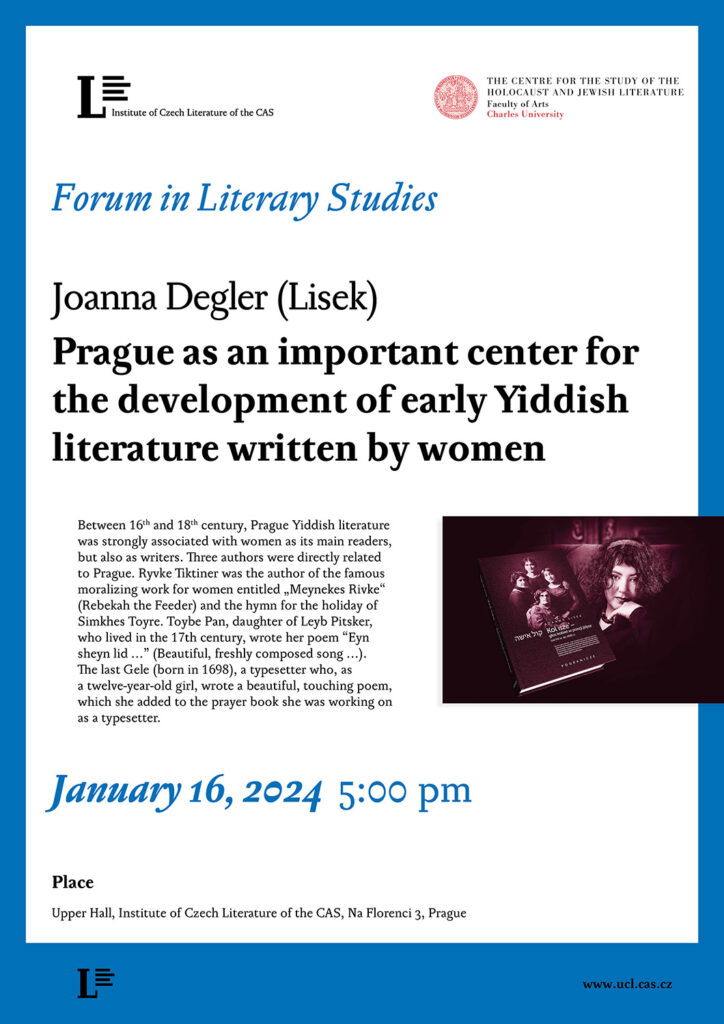
Poslední přednášející cyklu literárněvědného fóra, v němž jsme se zabývali jidiš a jidiškajt, bude 16. ledna 2024 Joanna Degler (Lisek) z Vratislavské univerzity s příspěvkem Prague as an important center for the development of early Yiddish literature written by women. Srdečně zveme!
Přednášku v angličtině můžete sledovat v úterý 16. ledna 2024 od 17 hodin v horním sále Ústavu pro českou literaturu AV ČR (Na Florenci 1420/3, Praha 1).
Aktuální sérii přednášek Literárněvědného fóra organizujeme ve spolupráci s Centrem pro studium holokaustu a židovské literatury.
Joanna Degler (Lisek) – Prague as an important center for the development of early Yiddish literature written by women
Prague was a very important center for the development of early Yiddish literature between 16th and 18th century, so in this period when it was strongly associated with women as its main readers, but also as creators. I will discuss this topic using the example of three authors directly related to Prague and one whose father probably came from this city.
One of the first Yiddish women-poets about whom some information has reached our times is Ryvke Tiktiner, a preacher and writer who enjoys the greatest recognition. In the middle of the 16th century, she was a zogerin in Prague. She is the author of the famous moralizing work for women entitled “Meynekes Rivke” (Rebekah the Feeder) and the hymn for the holiday of Simkhes Toyre.
Another example of an outstanding Yiddish writer from Prague is Toybe Pan, daughter of Leyb Pitsker, who lived in the 17th century. Her poem “Eyn sheyn lid naye gemakht beloshn tkhine iz vardin oysgetrakht” (Beautiful, freshly composed song, invented in the style of tkhine) combines elements of historical account and traditional tkhine (prayer). The impulse to write this poem of fifty-four stanzas was an epidemic that took a terrible toll.
The last woman-poet I will pay attention to will be Gele (born in 1698), a typesetter who, as a twelve-year-old girl, wrote a beautiful, touching poem, which she added to the prayer book she was working on as a typesetter.
During the lecture, I will show various strategies for Jewish women to appear in the written word.
